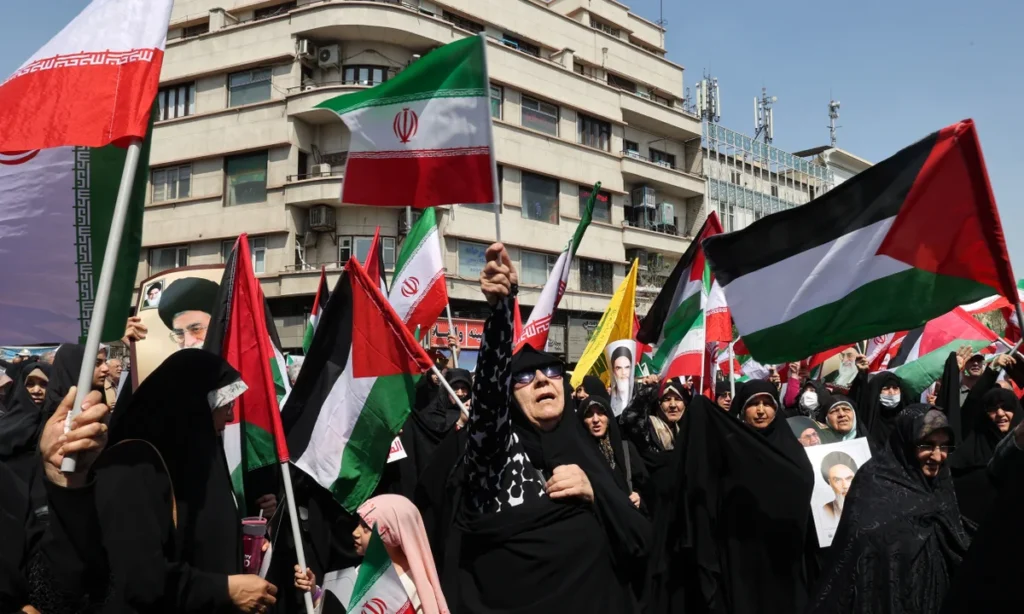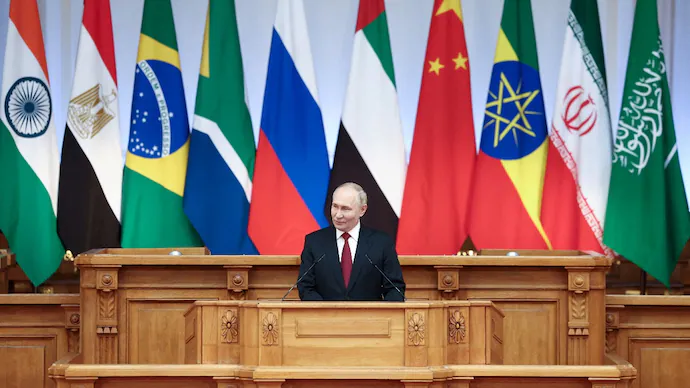Israel attacks Iran live Update: Tehran says two soldiers killed in Israeli strikes
Israel Strikes Iran: Tensions Escalate in the Region
In a dramatic escalation of hostilities in the Middle East, recent Israeli airstrikes on Iranian military sites have resulted in the deaths of two Iranian soldiers. This development underscores the long-standing tensions between Israel and Iran, two nations that have been locked in a complex and often adversarial relationship for decades.

Israel attacks Iran live updates: Israeli forces, early on Saturday, conducted “precise strikes on military targets in Iran”, in retaliation for a ballistic missile assault by the latter on October 1, officials told news agency Associated Press. In a statement released by the Israeli military, it said, “The regime in Iran and its proxies in the region have been relentlessly attacking Israel since Oct. 7 – on seven fronts – including direct attacks from Iranian soil. Like every other sovereign country in the world, the State of Israel has the right and the duty to respond.”4827
In a separate statement on X, posted military spokesman Rear Admiral Daniel Hegari, said it had “fully mobilized” its offensive and defensive capabilities ahead of the attack. Hegari also asked for people to remain “vigilant”, as Israel has placed its defense systems on high alert after the attacks.
The Iranian state had previously stated that any strike on their country would be met with a stronger retaliation.
American news channel
Fox News
reported on Friday that The White House was notified shortly before Israel carried out air strikes on Iran. The US had no involvement in Israel’s strikes in Iran early on Saturday, a US defense official told the BBC, adding that Washington had been informed of the operation beforehand.
The Israeli offensive comes amid US secretary of state Anthony Blin ken’s visit to Israel to mediate between the countries in the Middle East and achieve a ceasefire.
Israel also conducted strikes in Syria on early Saturday, with explosions heard in Damascus
Background of the Conflict
The roots of the conflict between Israel and Iran date back to the 1979 Iranian Revolution, which saw the establishment of an Islamic republic that has been openly hostile to Israel. Iran’s support for militant groups such as Hezbollah in Lebanon and Hamas in the Gaza Strip has further strained relations. Israel views Iran’s nuclear ambitions as an existential threat and has vowed to take action to prevent Tehran from acquiring nuclear weapons.
In recent years, the situation has intensified. Israel has conducted numerous airstrikes against Iranian targets in Syria, where Iranian forces have been supporting the Assad regime in its civil war. These strikes are part of Israel’s broader strategy to counter Iranian influence in the region and to disrupt its military operations.
Details of the Recent Strikes
The latest airstrikes occurred late at night, targeting military installations in western Iran. Israeli officials have not publicly confirmed their involvement, which is consistent with their policy of ambiguity regarding operations against Iran.
Iranian military sources reported that two soldiers were killed and several others injured in the attacks. In response, Iran’s military vowed to retaliate, stating that it would hold Israel accountable for its actions. Iranian officials condemned the strikes as “acts of aggression” and emphasized their commitment to defending the nation’s sovereignty.
International Reaction
The international community has reacted with concern to the escalating violence. The United States, which has historically been a staunch ally of Israel, has called for restraint from both sides.
European nations have also expressed their apprehension, emphasizing the need for diplomatic solutions to prevent further escalation.
Implications for Regional Stability
The implications of these airstrikes are significant. If Iran chooses to retaliate, it could lead to a cycle of violence that destabilizes the region further. Iran has various means at its disposal, including asymmetric warfare tactics and proxy forces throughout the Middle East. A direct confrontation could potentially involve Hezbollah and other militant groups, leading to a wider conflict.http://Israel attacks Iran live: Tehran says two soldiers killed in Israeli strikes
Moreover, these developments could impact the ongoing negotiations regarding Iran’s nuclear program. Countries involved in the negotiations may find it challenging to maintain a united front in the face of escalating hostilities.
The Domestic Response in Iran
Domestically, the Iranian government is likely to use this incident to rally public support and strengthen its narrative against Israel. The deaths of the soldiers may provoke a surge of nationalism and calls for retaliation among the Iranian populace. This could bolster the government’s standing, especially among hard-liner factions that advocate for a more aggressive stance against Israel.
The Role of Other Regional Players Other regional players are closely watching the developments.
Additionally, the involvement of external powers, such as Russia and China, complicates the situation further.
The Israeli airstrikes on Iran represent a significant escalation in the ongoing conflict between the two nations. With two Iranian soldiers killed and retaliatory threats looming, the potential for a broader conflict increases. The international community must navigate this complex situation carefully, promoting dialogue while also recognizing the realities on the groan.
As tensions rise, the need for a diplomatic resolution becomes ever more urgent
